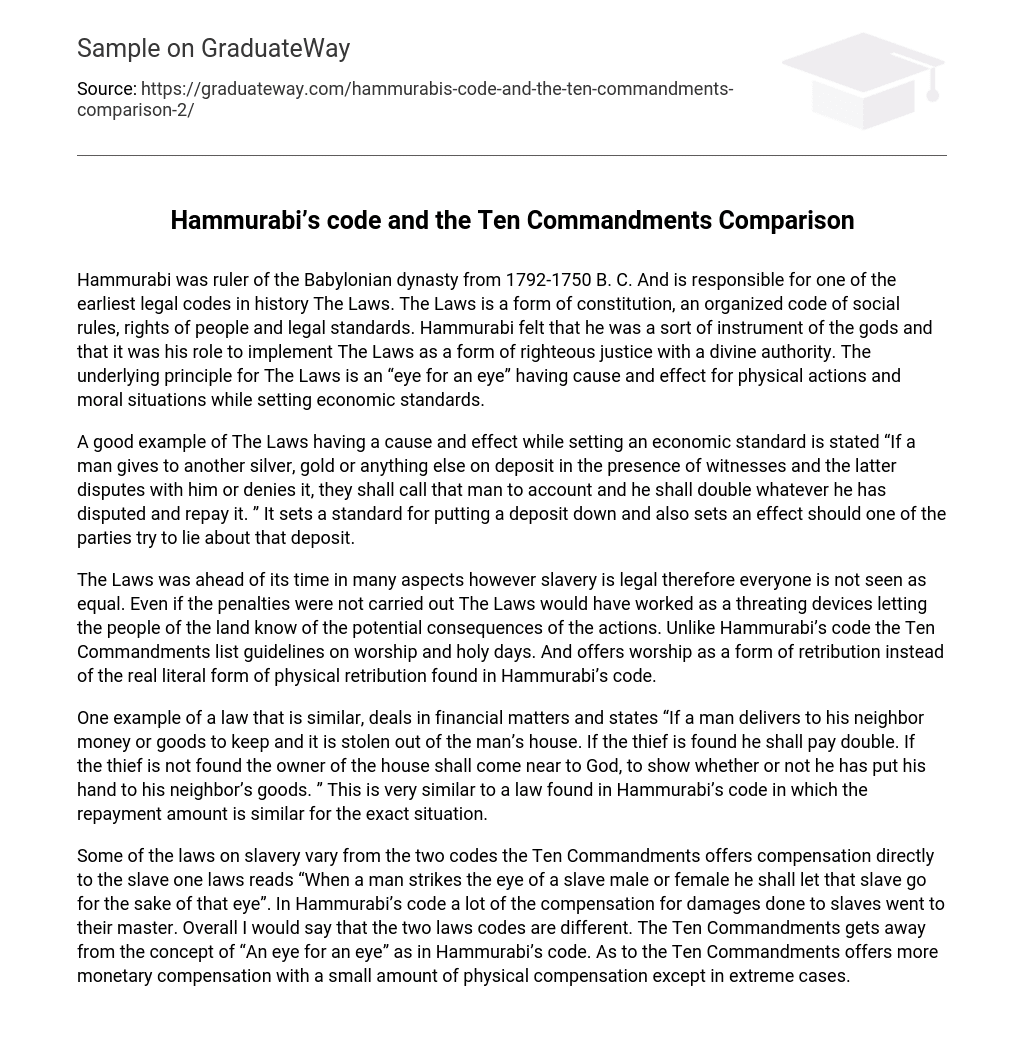Hammurabi was the ruler of the Babylonian dynasty from 1792-1750 B.C. and is credited with creating one of the earliest legal codes in history, known as The Laws. The Laws served as a constitution, outlining social rules, people’s rights, and legal standards. Hammurabi believed that he had a divine role to fulfill as an agent of the gods, and thus it was his duty to enforce The Laws to impose fair and just punishment. The Laws were based on the principle of “an eye for an eye,” establishing consequences for both physical actions and moral situations, while also addressing economic matters.
The Laws demonstrate a clear cause and effect relationship when it comes to economic standards. The text states that if someone deposits silver, gold, or any valuable item with another person and later disputes or denies the transaction, there are repercussions. In this case, witnesses can be summoned to hold the disputing party responsible. The disputing individual must then pay back double the amount they disputed to the original depositor. This law sets a standard for making deposits and acts as a deterrent against dishonesty in transactions.
The Laws was innovative in several respects, but it permitted slavery and therefore did not promote equality among individuals. Although the punishments may not have been enforced, The Laws served as a deterrent by informing the population about the possible consequences of their actions. Unlike Hammurabi’s code, the Ten Commandments includes instructions on worship and sanctified days, providing worship as a means of compensation instead of the explicit physical retaliation found in Hammurabi’s code.
One example of a law that is similar, deals in financial matters and states: “If a man delivers to his neighbor money or goods to keep and it is stolen out of the man’s house. If the thief is found he shall pay double. If the thief is not found the owner of the house shall come near to God, to show whether or not he has put his hand to his neighbor’s goods.” This law bears resemblance to a corresponding law in Hammurabi’s code, wherein the repayment amount is similar in case of an identical circumstance.
The laws on slavery differ between the two codes. One of the laws in the Ten Commandments states that if a man strikes the eye of a slave, male or female, he must release that slave for the sake of the injured eye. In contrast, Hammurabi’s code predominantly provides compensation for damages to slaves to their master. In general, the two code laws are distinct. The Ten Commandments deviates from the principle of “An eye for an eye” found in Hammurabi’s code. Furthermore, the Ten Commandments offers more monetary compensation with minimal physical restitution, except in extreme cases.





